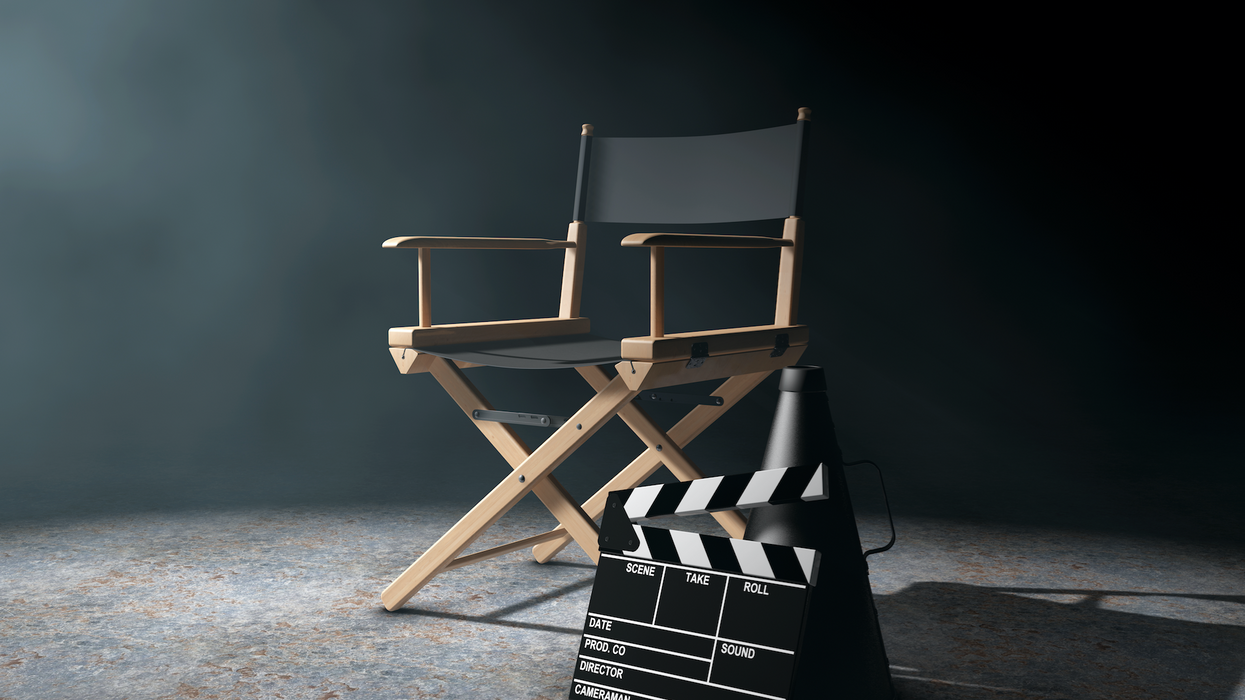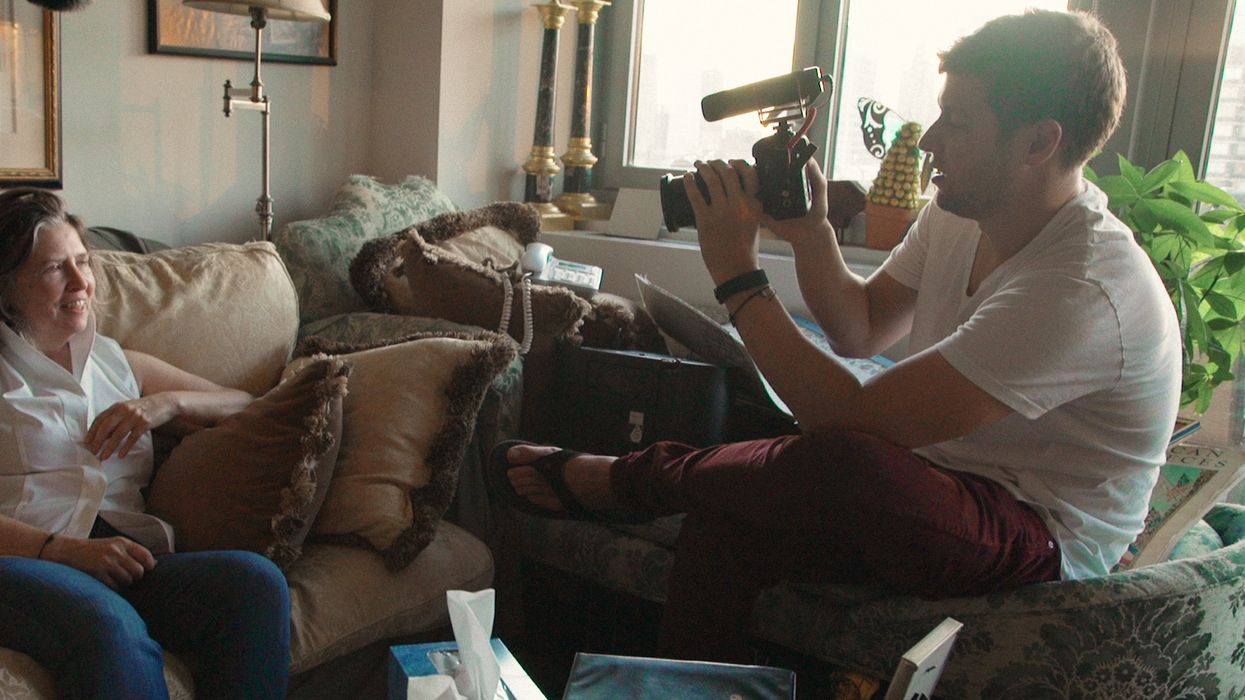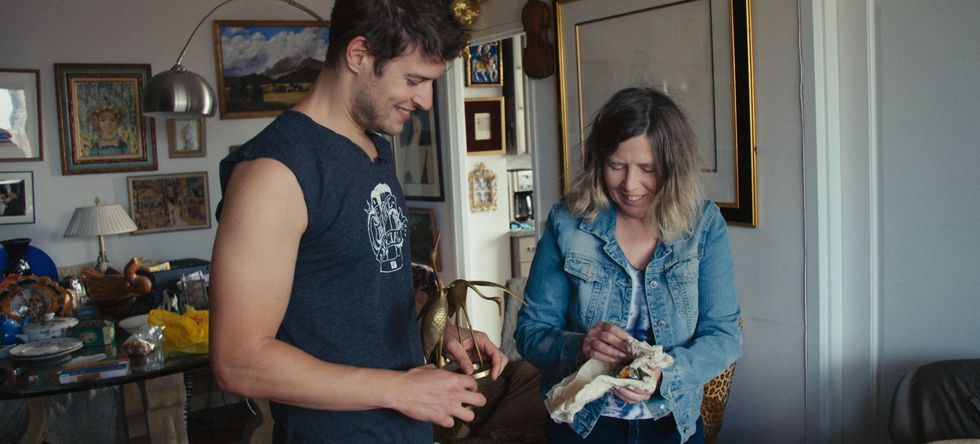How to Become a Movie Director: Getting the Job is the Job
Everyone wants to direct. But how do you actually get the job?

As far as filmmaking careers go, directing is great. The word “Director” is next to your name on the call sheet. You’ll usually get included in the good coffee run. You get to go to a set and work with amazingly talented people on new fresh projects every month or so. But for every cool day on set, there are five times that many not-as-cool days, and that’s where the real work happens.
I dug through my 2018 calendar, let me throw a couple numbers at you. On 76 days, I had meetings, lunches, phone calls, and conference calls. I spent another 57 days pitching or working on pitches and making write-ups and one-sheets for projects (many that I didn’t book). Finally, I spent 42 paid days shooting on set.
42 days that need to pay a year’s worth of rent, bills, health insurance (shout out to all my fellow non-DGAers!), investments/savings and the self-employment tax on it all.
I’ve been a working director for over 10 years on TV, features, commercials, and “content”. Before that, I did an assortment of hit and miss freelance work, though it’s always a little stomach churning to see how much rides on those 42 days of work.
But directing is fun, and real jobs aren’t fun. The real job is getting the job. Here are a few of the things you’ll need to do to get the job, and a few tips on booking it.
(I need to give unpaid endorsements to two podcasts that I like. “Respect the Process” with Jordan Brady and “Just Shoot It” with Oren Kaplan and Matt Enlow. These podcasts give great amounts of insight into all aspects of directing, and I first heard “getting the job is the job” on one of them. I can’t remember which, but both are worth a listen!)
How to Become a Movie Director Part 1: Pitch Decks
In film school, no one tells you that a huge portion of your free time will be spent making pitch decks in Powerpoint or Keynote. I’ve had to make lookbooks for features, pitch decks for commercials, decks for series work.
No matter what kind of project you’re going out for, they’ll all require some pre-visualization so that the producers and execs can get a sense of what’s in your head.
Your layout skills need to be on point. Text and image must fall flawlessly onto the page, each JPG and sentence working together in harmony telling the producer or agency “This is the right person for the job, hire them!”
Oh, what’s that? Your design skills are lackluster? You don’t know where to find images that every other director in town isn’t already using? You don’t have the time to spend unpaid DAYS in front of your computer looking for the perfect font and color palette?
Sorry, you won’t book it, and that commercial is going to a much better director across town.
Lighting, wardrobe, locations, casting, camera angles.
All of these things and more need to be visually represented in your deck. A pitch deck should represent your unique vision or take on a project. It needs to be personal, iconic, entertaining, and extremely visually appealing. Pulling some photos from the first page of a Google image search just won’t cut it. You need to dig deep for those fresh and perfect images.
And these decks take time to make. Like, a week that you’re not getting paid, and may not get paid for if you don’t get the job. So knuckle down and start digging for those good photos, or get ready to Photoshop some stock footage until it’s perfect
Pitch Deck Tips
Hire Help - Sometimes, a producer at an agency can help you make these decks. But if you really aren’t great at laying out images and text, you can also pay someone to do the layout and design work. No one has to know you didn’t make the deck yourself. You can pull all the images you love and write all the text you need and hand it off to a designer.
Personalization - Inject your personality into this deck. Choose some images that really speak to you. A montage of images can give the right vibe. Write about how this commercial or project speaks to you, and how you relate to it on a personal level. I once pitched for a dating app commercial and related to it by saying that I missed out on dating apps, because I met my wife the old fashioned way, drunk at a bar. I didn’t get that commercial.
Consume Everything - Dig through the weird parts of Vimeo. Crawl through Instagram and photography sites and download anything that resonates with you. Even if you don’t know what it’s for yet, eventually you’ll have a pitch that those images will be great references for.
How To Become a Movie Director Part 2: The Pitch
So, you spent a week making a deck, now you move onto the next phase of getting the job: the pitch. The best way to really dig into this concept is to master the art of the elevator pitch.
Most of my commercial pitches are either over the phone or over a video chat. Everyone will dial in, no one will be on mute, no one can hear anything, and it’s a goddamn disaster.
Then there will be some small talk from the clients or an agency producer. Then someone will throw the call to you, the director, and you get to sell everyone on your vision as they eat their salads or as they walk down a windy New York street (while still not on mute).
And over all that noise, and over all those things competing for everyone’s attention, you need to sell yourself and your super original and extremely compelling take on an idea.
I once hoped that my work would speak for itself. That I’d make some good stuff and then other people would want to hire me to make their good stuff too. That kind of happens, but I have to speak too. I have to put on my best attitude and speaking voice and pitch the hell out of whatever it is I’m trying to get hired for.
Years ago, I was on a call with some potential talent for a shoot. I pitched them on the creative, what their role was and why they’d be awesome for it. The video was going to be so much fun, we would collaborate and make something everyone would love.
I thought it was a great call.
But as soon as we hung up, one of the producers turned to me with a look on her face. She said, “You say interesting things, but you just sound so fucking bored.” Maybe a bit harsh but I took her point. On the next call, I stood up, was overly animated, and really cranked the energy up. That call ended with a high five from her.
That was a decent lesson for me. The pitch is your chance to sell your passion. Everyone will have the deck and can see the visual part, but they need to hear how INTO it you are, so put your energy into it. Be the storyteller that you want them to pay you to be.
Oh yeah, this is a good time to remind you that this part also doesn’t pay.
The pitch is your chance to sell your passion.
You’ll spend days working on your pitch deck and then a whole day nervously pacing around waiting for the call to start. Then you’ll spend the rest of the day sitting there wondering if the call went well and if you’ll get the job.
While you’re waiting for a response, that client will most likely hear pitches from two other directors. Two directors who probably had better pitch decks and are definitely more charismatic than you!
If you’re lucky you’ll get to do this a couple of times a month.
Pitch Tips
Drink some strong coffee and get into it. You need to be in the zone for this. You need to have passion, energy, and good ideas that align with the client. Spend time writing down questions that you have, and then come up with great answers for them. You will definitely be asked a curveball question and flubbing it in front of a dozen other people isn’t a good look. It’s okay to not have the perfect answer, but if you can make it sound like the perfect answer, that’s usually just as good.
How to Become a Movie Director Part 3: Create a Memorable Reel
The truth is you can help yourself get the job if you’ve already done the job.
If you’re pitching for a project with penguins, your chance of booking it goes up significantly if you show the client your penguin reel. Maybe you’ve directed fashion or food or high energy action sports, but those won’t help you get the penguin spot.
Be ready to hack apart your previous work and make custom reels for each job you pitch for. If you’re up for a comedy piece but have only directed dramatic, find all the funniest stuff in your previous work and cut it together.
Be ready to hack apart your previous work and make custom reels for each job you pitch for.
For years, my general directing reels were just montages of clips from projects set to whatever indie pop tune I was currently obsessed with. Cool angle, famous person, interesting camera move, less famous person, etc.
I didn’t realize I was making the worst mistake possible: I was boring the hell out of people.
The producers watching your reel, the ones who have the power to hire you, are all too busy to tell you that your reel is garbage. Directors with boring garbage reels don’t get hired for good jobs.
One year, I decided to make the worst reel possible. Like, I just got weird with it. My reel ended up being just a mishmash of MIDI tunes, 90’s GIFS, and a text-to-speech robotic voice narrating over some clips of my work. I thought it was hilarious but definitely bad. Who cares though, no one really watches reels, right?
Maybe they do...
Meetings now started off with compliments about the reel. It gave people a sense of who I was and my sense of humor. It was a great ice breaker. My “bad” reel ended up perfectly representing me and my work. I for sure lost jobs because of that reel, but maybe that’s for the best since I got to focus more on making stuff that really appealed to me.
Get weird and spend a few days making a reel that shows everyone who you are, and what you’re all about. It will help you get the job.
Reel Tips
Truly, everyone hates watching and making these things. They’re a necessary evil though. Keep it short. And if you really go weird, keep a 2nd reel on a private link that’s a little safer and more vanilla so you don’t lose out on as many job opportunities as I did.
How to Become a Movie Director Part 4: Not Getting the Job
Every year, you’re going work for days and weeks developing ideas that go nowhere.
Your ideas and energy will get poured into a project, only for the job to go to someone else. You’ll finally crack that story nugget and build out a compelling synopsis, just in time for that production company to completely pivot away from your idea...or go out of business (both happen regularly).
You’ll spend hours sitting in traffic to meet with someone who won’t have any jobs that you’re right for. You’ll trade emails and texts every day about projects that will go to someone else or disappear entirely.
That’s a couple of months of your life down the drain.
And this doesn’t even take into account the time that you’ll want to spend on your own projects, your own scripts.
Not getting the job is bad, but when someone is actually interested in working with you and you don’t have anything to send them, that’s much worse.
So in between all the other stuff, we need to make sure that we’re coming up with fresh ideas, writing specs, and making some shorts or sizzles. That’s another couple of months of work, easy. Unpaid or spending out of pocket.
Directing isn’t 9-5, and “work” doesn’t always mean sitting in front of your computer for eight hours. Preparing for that meeting, deciding how to tactfully respond to a text message, juggling dates and scheduling conflicts... that’s all the work. It takes over your headspace and can consume you to various degrees.
Last year, all things considered, I worked for around 300 days and got paid for 42 of them. A lot of those were commercials or branded content with one and two-day shoots. Some years, I’ll do more series work and have more on-set days, but in that time I have to pass on other jobs.
So, I think that enjoying a directing career isn’t about how much you enjoy being on set. We all love being on set. Enjoying a directing career is about how much you love all the stuff that it takes to get you onto set.
Over the years, I’ve gotten pretty good at enjoying that part of it. It’s not always easy or fun, but every time I get a text message from one of my favorite producers, I get excited.
I get excited to think about how I’d approach a project, brainstorm fun things to do with how to shoot and edit it. I dive into each deck and pitch with enthusiasm and energy. Every traffic-clogged drive across LA for a general meeting is just pure potential. Every conference call is one less that we need to do until we’re on set and shooting.
Not getting the job isn’t a defeat. It sucks, sure. But it’s also a chance to prepare yourself for the next one. And the next one will be the one! The one that takes off, propels your career to the next level! Name recognition! High profile projects! Checks with more zeros at the end! All of that awaits you on the other side if you can power through this toothpaste branded content pitch and knock that shit out of the park.
Get to work!

 'Little Empty Boxes'https://littleemptyboxes.com/
'Little Empty Boxes'https://littleemptyboxes.com/ 'Little Empty Boxes'
'Little Empty Boxes'









